|
|
|
Profile Books
|
In a timely and eye-opening book Rodric Braithwaite examines the Russian experience in that most recent war in Afghanistan (after Alexander's conquests and the many British imperial wars and skirmishes). Largely basing his account on Russian sources and interviews he shows the war through the eyes of the Russians themselves — politicians, officers, soldiers, advisers, journalists, women. As former ambassador to Moscow, Rodric Braithwaite brings unique insights to the Soviet war in Afghanistan. The story has been distorted not only by Cold War propaganda but also by the myths of the nineteenth century Great Game. It moves from the high politics of the Kremlin to the lonely Russian conscripts in isolated mountain outposts. The parallels with Afghanistan today speak for themselves. A superb achievement of narrative history, sensitive writing and exciting fresh research: so wrote Simon Sebag Montefiore about Rodric Braithwaite's bestseller Moscow 1941. But those words, and many others of praise that were given it, could equally apply to his new book. |
|
From Weimar Berlin to the fall of Paris, and on to the present day, danger, jealousy and inspiration combine to tempt a man to a secret betrayal. Now a Radio 4 Book at Bedtime scheduled for 27th June — 8th July. Chip told us not to go out. Said, don't you boys tempt the devil. But it been one brawl of a night, I tell you. The aftermath of the fall of Paris, 1940. Hieronymous Falk, a rising star on the cabaret scene, was arrested in a cafe and never heard from again. He was twenty years old. He was a German citizen. And he was black. Fifty years later, Sid, Hiero's bandmate and the only witness that day, is going back to Berlin. Persuaded by his old friend Chip, Sid discovers there's more to the journey than he thought when Chip shares a mysterious letter, bringing to the surface secrets buried since Hiero's fate was settled. In Half Blood Blues, Esi Edugyan weaves the horror of betrayal, the burden of loyalty and the possibility that, if you don't tell your story, someone else might tell it for you. And they just might tell it wrong... |
|
This is the definitive concise account of our remarkable past. Which battle was fought 'For England, Harry and St George'? Who demanded to be painted 'warts and all'? What — and when — was the Battle of the Bulge? In A Short History of England, bestselling author Simon Jenkins answers all these questions — and many more — as he tells the tumultuous story of a fascinating nation. From the invaders of the dark ages to today's coalition, via the Tudors, the Stuarts and two world wars, Jenkins weaves together a gripping narrative with all the most important and interesting dates in his own inimitable style. Until now there has been no short history of England covering all significant event themes and individuals: this bestselling book, published in association with the National Trust, will be the standard work for years to come. |
|
One of the top ten greatest doctors in the world looks at the lowly checklist, and how this simple idea — which is free to reproduce — will revolutionise the way we approach problems, and help save lives. Today we find ourselves in possession of stupendous know-how, which we willingly place in the hands of the most highly skilled people. |
|
A biography of the impresario of the arts and creator of The Ballets Russes. |

|
This is a witty, elegant enquiry into the art of persuasion. Rhetoric is what gives words power. It's nothing to be afraid of. It isn't the exclusive preserve of politicians: it's everywhere, from your argument with the insurance company to your plea to the waitress for a table near the window. It convicts criminals (and then frees them on appeal). It causes governments to rise and fall, best men to be shunned by brides, and people to march with steady purpose toward machine guns. In this highly entertaining (and persuasive) book, Sam Leith examines how people have taught, practiced and thought about rhetoric from its Attic origins to its twenty first century apotheosis. Along the way, he tells the stories of its heroes and villain from Cicero and Erasmus, to Hitler, Obama — and Gyles Brandreth. |

|
Argues that the physical violence we see is often generated by the systemic violence that sustains our political and economic systems. With the help of eminent philosophers and frequent references to popular culture, this title examines the causes of violent outbreaks like those seen in Israel and Palestine and in terrorist acts around the world. |
|
Rodric Braithwaite's magnificent narrative of 1941 and the Battle of Moscow, and the Russian men and women who fought it, was one of the major history titles of 2006 in both universal acclaim and sales. Based on huge research and scores of interviews, this book offers an unforgettable and richly illustrated narrative of the military action that took place in Moscow during 1941; telling portraits of Stalin and his generals, some apparatchiks, some great commanders. It also traces the stories of individuals, soldiers, politicians and intellectuals, writers and artists and dancers, workers, schoolchildren and peasants. |
|
This is a remarkable new biography of a cultural icon. Today we view Cezanne as a monumental figure, but during his lifetime (1839-1906), many did not understand him or his work. With brilliant insight, drawing or a vast range of primary sources, Alex Danchev tells the story of an artist who was never accepted into the official Salon: he was considered a revolutionary at best an a barbarian at worst, whose paintings were unfinished, distorted and strange. His work sold to no one outside his immediate circle until his late thirties, and he maintained that to paint from nature is not to copy an object; it is to represent its sensations — a belief way ahead of his time, with stunning implications that became the obsession of many other artists and writers, from Matisse and Braque to Rilke and Gertrude Stein. Beginning with the restless teenager from Aix who was best friends with Emile Zo at school, Danchev carries us through the trials of a painter tormented by self-doub[illegible] who always remained an outsider, both of society and the bustle of the art world. Cezanne: A Life delivers not only the fascinating days and years of the visionary who would astonish Paris with an apple, with interludes analysing his self-portrait — but also a complete assessment of Cezanne's ongoing influence through artistic imaginations in our own time. He is, as this life shows, a cultural icon comparable Marx or Freud. |
|
Featuring Latinate and Celtic words, weasel words and nonce-words, ancient word (loaf) to advanced (twittersphere) and spanning the indispensable words that shape our tongue (and, what) to the more fanciful (fopdoodle), the author takes us along the winding byways of language via the rude, the obscure and the downright surprising. |
|
Building on the hugely successful annual Economist The World in... publications, this essential guide to the twenty-first century captures the sweeping, fundamental trends that are changing the world faster than at any time in human history. In 2050 there will be 9.3 billion people alive — compared with 7 billion today — and the number will still be rising. The population aged over sixty-five will have more than doubled, to more than 16 per cent; China's GDP will be 80 per cent more than America's; and the number of cars on India's roads will have increased by 3,880 per cent. And, in 2050 it should be clear whether we are alone in the universe. What other megachanges can we expect — and what will their impact be? This comprehensive and compelling book will cover the most significant trends that are shaping the coming decades, with each of its twenty chapters elegantly and authoritatively outlined by Economist contributors, and rich in supporting facts and figures. It will chart the rise and fall of fertility rates across continents; how energy resources will change in light of new technology, and how different nations will deal with major developments in science and warfare. Megachange is essential reading for anyone who wants to know what the next four decades hold in store. |
|
Most of us face the same questions every day: What do I want? And how can I get it? How can I live more happily and work more efficiently? A worldwide bestseller, The Decision Book distils into a single volume the fifty best decision-making models used on MBA courses and elsewhere that will help you tackle these important questions — from the well known (the Eisenhower matrix for time management) to the less familiar but equally useful (the Swiss Cheese model). It will even show you how to remember everything you will have learned by the end of it. Stylish and compact, this little black book is a powerful asset. Whether you need to plot a presentation, assess someone's business idea or get to know yourself better, this unique guide will help you simplify any problem and take steps towards the right decision. |

|
Until the catastrophic economic crisis of the late 1990s, East Asia was perceived as a monolithic success story. But heady economic growth rates masked the most divided continent in the world — one half the most extraordinary developmental success story ever seen, the other half a paper tiger. Joe Studwell explores how policies ridiculed by economists created titans in Japan, Korea and Taiwan, and are now behind the rise of China, while the best advice the West could offer sold its allies in south-east Asia down the economic river. The first book to offer an Asia-wide deconstruction of success and failure in economic development, Studwell's latest work is provocative and iconoclastic — and sobering reading for most of the world's developing countries. How Asia Works is a must-read book that packs powerful insights about the world's most misunderstood continent. |
|
The world of Mood Indigo is a stained-glass cartoon kind of a place, where the piano dispenses cocktails, the kitchen mice dance to the sound of sunbeams, and the air is three parts jazz. Colin is a wealthy young aristocrat, a slim, innocent creature who loves easily. The instant he sees Chloe, bass drums thump inside his shirt, and soon the two are married. Typically generous, Colin gives a quarter of his fortune to his best friend Chick so he can marry Chloe's friend Alyssum.But a lily grows in Chloe's lung, and Colin must spend his remaining fortune on the only available treatment: surrounding her daily with fresh flowers. Chick squanders his share of Colin's money on rare editions of Jean Pulse Heartre, and Alyssum decides her only recourse is to murder the philosopher whose books are ruining her husband. Chick and Colin's money woes force them to sacrifice their carefree lives to soul-crushing work, and even the suicidal mice wear themselves out trying to restore the lustre to the kitchen tiles. |
|
Why is there an 'h' in ghost? William Caxton, inventor of the printing press and his Flemish employees are to blame: without a dictionary or style guide to hand in fifteenth century Bruges, the typesetters simply spelled it the way it sounded to their foreign ears, and it stuck. Seventy-five per cent of English spelling is regular but twenty-five per cent is complicated, and in Spell It Out our foremost linguistics expert David Crystal extends a helping hand to the confused and curious alike. He unearths the stories behind the rogue words that confound us, and explains why these peculiarities entered the mainstream, in an epic journey taking in sixth century monks, French and Latin upstarts, the Industrial Revolution and the internet. By learning the history and the principles, Crystal shows how the spellings that break all the rules become easier to get right. |

|
Like Sherlock Holmes' dog in the night time, sometimes the true significance of things lies in their absence. Rick Gekoski tells the very human stories that lie behind some of the greatest losses to artistic culture — and addresses the questions such disappearances raise. Some of the items are stolen (the Mona Lisa), some destroyed (like Philip Larkin's diaries) and some were lost before they even existed, like the career of the brilliant art deco architect, Charles Rennie Mackintosh, which floundered amid a lack of cash — but behind all of them lies an often surprising story which reveals a lot about what art means to us. Gekoski explores the greater questions these tremendous losses raise — such as the rights artists and authors have over their own work, the importance of the search for perfection in creativity, and what motivated people to queue to see the empty space where the Mona Lisa once hung in the Louvre. |

|
The United Kingdom; Great Britain; the British Isles; the Home Nations: such a wealth of different names implies uncertainty and contention — and an ability to invent and adjust. In a year that sees a Scottish referendum on independence, Linda Colley analyses some of the forces that have unified Britain in the past. She examines the mythology of Britishness, and how far — and why — it has faded. She discusses the Acts of Union with Wales, Scotland and Ireland, and their limitations, while scrutinizing England's own fractures. And she demonstrates how the UK has been shaped by movement: of British people to other countries and continents, and of people, ideas and influences arriving from elsewhere. As acts of union and disunion again become increasingly relevant to our daily lives and politics, Colley considers how — if at all — the pieces might be put together anew, and what this might mean. Based on a 15-part BBC Radio 4 series. |
|
He achieves the miraculous, the sculptor Auguste Rodin wrote of dancer Vaslav Nijinsky. He embodies all the beauty of classical frescoes and statues. Like so many since, Rodin recognised that in Nijinsky classical ballet had one of the greatest and most original artists of the twentieth century, in any genre. Immersed in the world of dance from his childhood, he found his natural home in the Imperial Theatre and the Ballets Russes, he had a powerful sponsor in Sergei Diaghilev — until a dramatic and public failure ended his career and set him on a route to madness. As a dancer, he was acclaimed as godlike for his extraordinary grace and elevation, but the opening of Stravinsky's The Rite of Spring saw furious brawls between admirers of his radically unballetic choreography and horrified traditionalists. Nijinsky's story has lost none of its power to shock, fascinate and move. Adored and reviled in his lifetime, his phenomenal talent was shadowed by schizophrenia and an intense but destructive relationship with his lover, Diaghilev. I am alive he wrote in his diary, and so I suffer. In the first biography for forty years, Lucy Moore examines a career defined by two forces — inspired performance and an equally headline-grabbing talent for controversy, which tells us much about both genius and madness. This is the full story of one of the greatest figures of the twentieth century, comparable to the work of Rosamund Bartlett or Sjeng Scheijen. |
|
In Being Mortal, Gawande examines his experiences as a surgeon, as he confronts the realities of aging and dying in his patients and in his family, as well as the limits of what he can do. And he emerges with story that crosses the globe and history, exploring questions that range from the curious to the profound: What happens to people's teeth as they get old? Did human beings really commit senecide, the sacrifice of the elderly? Why do the aged so dread nursing homes and hospitals? How should someone give another person the dreadful news that they will die? This is a story told only as Atul Gawande can — penetrating people's lives and also the systems that have evolved to govern our mortality. Those systems, he observes, routinely fail to serve — or even acknowledge — people's needs and priorities beyond mere survival. And the consequences are devastating lives, families, and even whole economies. But, as he reveals, it doesn't have to be this way. Atul Gawande has delivered an engrossing tale of science, history and remarkable characters in the vein of Oliver Sacks. |

|
The updated edition of Secret Affairs covers the momentous events of the past year in the Middle East. It reveals the unreported attempts by Britain to cultivate relations with the Muslim Brotherhood in Egypt after the fall of Mubarak, the military intervention on the side of Libyan rebel forces which include pro-al-Qaeda elements, and the ongoing reliance on the region's ultimate fundamentalist state, Saudi Arabia, to safeguard its interest in the Middle East. In this ground-breaking book, Mark Curtis reveals the covert history of British collusion with radical Islamic and terrorist groups. Secret Affairs shows how governments since the 1940s have connived with militant forces to control oil resources and overthrow governments. The story of how Britain has helped nurture the rise of global terrorism has never been told. |
|